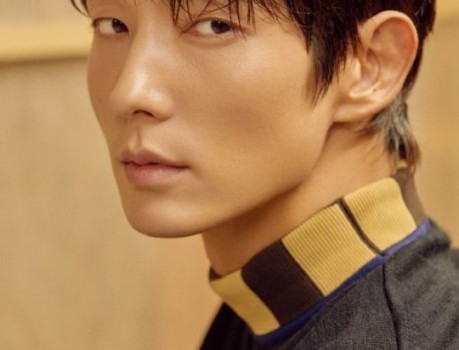Princess Jeong-soon (played by Lee Joo-yeon-I) is, at present, my most disliked character in "Saimdang: Light's Diary". This isn't because there's anything wrong with Princess Jeong-soon or the actress playing her. In fact, Princess Jeong-soon is one of the few people we see demonstrating a consistent interest in painting. That's why I hate her- time and again "Saimdang: Light's Diary" treats Princess Jeong-soon's interest in painting as if it were some form of naïve idiocy.
There are, admittedly, some good scenes here where Saimdang does manage to actually discuss art for once. Meanwhile, Headmistress Choi is out selling good Korean art to international buyers, which at minimum makes her the better cultural ambassador. Yeah, OK, they're pirates but still. Dubious motives notwithstanding Headmistress Choi is the first character to treat Princess Jeong-soon's interest in art with genuine encouragement. The metaphors in "Saimdang: Light's Diary" are just a tad mixed.
Consider Headmistress Choi's evil rapist murderer husband Chi-yeong (played by Choi Chul-ho). He's kind of hard to sympathize with, what with being an evil rapist murderer and all. Yet director Yoon Sang-ho is, for reasons unclear, making Chi-yeong an object of pity. It's pretty obvious that Chi-yeong is going to go full evil again the minute an opportunity presents itself, so why make a pretense at depth now?
Eagle-eyed readers may note that I've never discussed Chi-yeong specifically before. That's because he's always been such a one note character there's never been much to discuss. But the attempts at character depth here are similarly frustrating because they call attention to how Chi-yeong is, by design, completely superficially evil. Chi-yeong does not have to kill people or violently have sex with his wife. Really, Chi-yeong would be a much more interesting character if he was smart evil, and his peculiar behavior here a consequence of lowered self-esteem post-exile.
Lastly, we can't forget the Won-soo storyline, which appears to resolve with Saimdang deciding that her husband's adultery is acceptable since he'll probably come home eventually. This superficially sounds like Confucianism but it's not. People tend to forget that Confucianism holds men up to some fairly strict ethical standards- even if some forms of negotiated adultery are allowed, what Won-soo has been doing definitely would not be. But then why am I, a Westerner, having to explain this? Did the production team behind "Saimdang: Light's Diary" seriously not even bother to do cursory research on the subject?
Source:HanCinema












